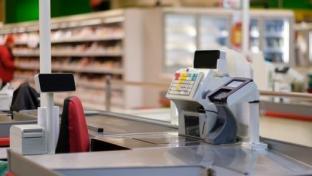Consumers Tamp Down Optimism on Grocery Spend
Consumers, who have adapted to a lot of transformational change over the past few years, are getting good at it. That’s one conclusion from the "2023 KPMG Winter Consumer Pulse Survey," which shows that consumers anticipate additional hikes in grocery prices but are actively and successfully looking for ways to save money.
According to the survey, consumers expect a 15% increase in their grocery spend in 2023. More than half (56%) think they will spend more on groceries this year, with only 9% indicating that they plan to spend less.
[Read more: "Shoppers Prioritizing Affordability for Food Buying in 2023"]
An overwhelming majority of 91% of survey respondents cite ongoing price increases as a reason for their outlook. During the ongoing inflationary climate, survey participants shared other reasons why they believe their grocery spend will continue to rise, including their greater tendency to eat at home, bigger household size and change in diet.
In other sectors, 31% of consumers report that they will spend more on personal care products in 2023 versus 17% in 2022. Expectations in foodservice are holding steady, as 38% think they will pay more for restaurant meals in the months ahead, a 2% increase from last year.
Given consistent inflation, shoppers are changing their habits. For example, 35% reported that they intend to spend less online across all categories this year, compared to 16% who felt that way in winter 2022. Many respondents are reining in spending in other areas, noting that they are putting off buying a home or refinancing their existing home.
While consumers are tweaking their spending habits and keeping a wary eye on the economy, their incomes are relatively flat. KPMG’s latest survey found that nearly half (44%) of consumers reported an average increase in their household income of 16% and 21% report that their income dipped an average of 31%.
Matt Kramer, KPMG’s consumer and retail leader, said that the latest findings show that consumers are getting used to a marketplace and personal circumstances that are in flux. “The January monthly retail sales report surged well beyond expectations, although the year over year result was perfectly in line with inflation. Our most recent consumer pulse survey showed consumers have largely better or equal pay, and are becoming fairly savvy at managing their household budget through shopping around, finding promotional discounts and deferring large purchases,” he observed. “Consumers will spend more in 2023 on essentials, particularly grocery, automotive and personal care, and also not miss out on events and experiences with select discretionary categories like travel and restaurants proving to be winners.”
KPMG's survey was conducted on 1,000 U.S. consumers.







